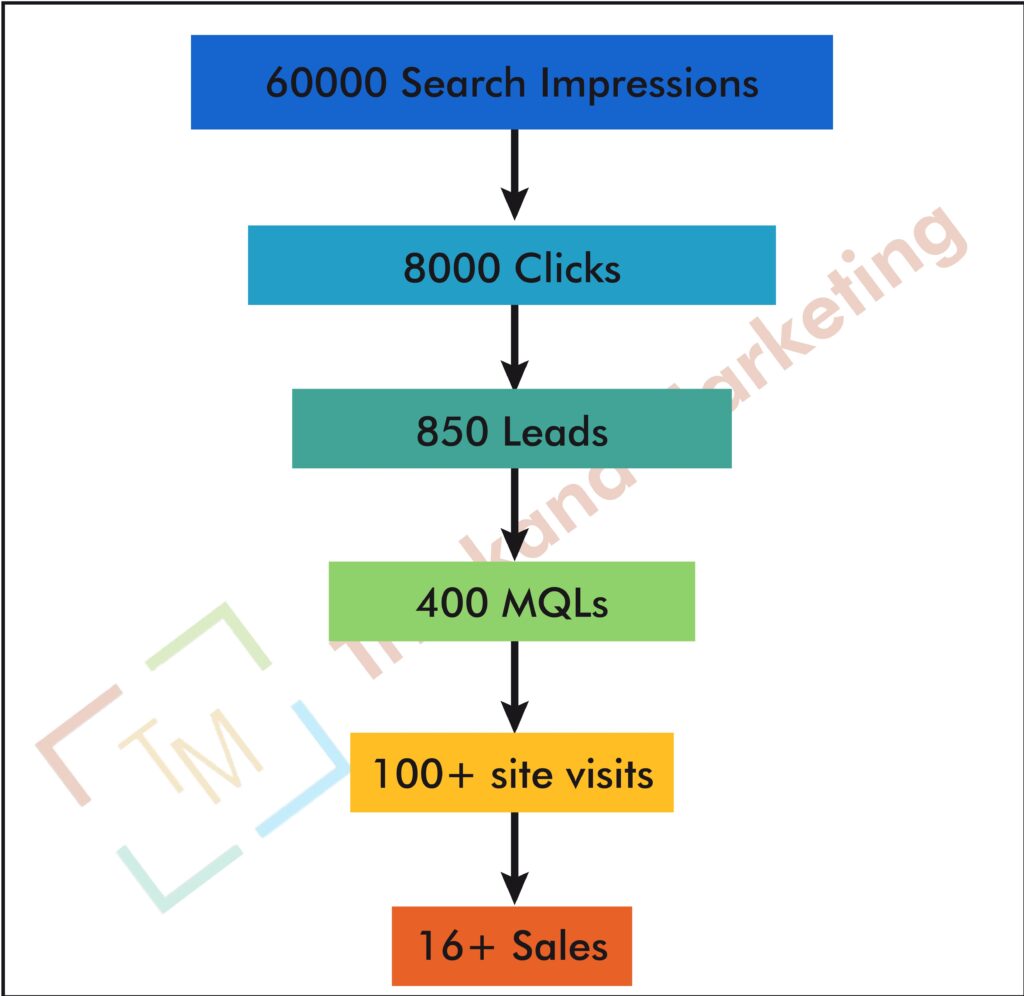In an increasingly digital landscape, the significance of Search Engine Optimization (SEO) for B2B companies cannot be overstated. As businesses strive to improve their online visibility, attract potential clients, and build lasting relationships, a well-structured SEO strategy emerges as a crucial component for sustainable growth. In 2025, understanding how to leverage SEO effectively will be essential for B2B companies seeking to enhance their market presence.
This guide will delve into the critical elements of SEO that B2B companies can harness to achieve long-term growth and visibility.
Understanding the Importance of SEO for B2B
SEO is critical for B2B companies for several reasons:
- Increased Visibility: With effective SEO, businesses can rank higher in search engine results pages (SERPs), making it easier for potential clients to find their services.
- Lead Generation: A well-optimized website attracts targeted traffic, leading to higher quality leads.
- Credibility and Trust: High rankings in search results establish a company as an authority in its industry, fostering trust among potential clients.
- Cost-Effective Marketing: Compared to traditional advertising methods, SEO offers a higher ROI over time, as organic traffic can significantly reduce lead acquisition costs.
In 2025, investing in SEO will be pivotal for B2B companies to maintain competitive advantages.
Conducting Comprehensive Keyword Research
Keyword research forms the foundation of any successful SEO strategy. For B2B companies, it’s essential to identify keywords that align with their offerings and the needs of their target audience.
Steps to Conduct Keyword Research:
- Identify Your Audience: Understand who your potential clients are and what challenges they face.
- Use Keyword Research Tools: Utilize tools like Google Keyword Planner, SEMrush, or Ahrefs to discover relevant keywords and phrases.
- Focus on Long-Tail Keywords: These are more specific phrases that typically have lower competition and higher conversion rates, such as “B2B digital marketing strategies.”
- Analyze Competitor Keywords: Review what keywords your competitors are targeting to identify gaps in your strategy.
By targeting the right keywords, B2B companies can attract the right audience to their websites.
Creating High-Quality, Relevant Content
Content is at the heart of effective SEO. B2B companies should focus on creating high-quality, informative content that addresses the needs of their audience.
Content Types to Consider:
- Blog Posts: Regularly updated blog content helps keep your website fresh and provides opportunities to target new keywords.
- Whitepapers and E-books: In-depth resources establish authority and can be used to capture leads through gated content.
- Case Studies: Showcasing real-world examples of your solutions helps build credibility and demonstrates value.
- Videos and Webinars: Engaging multimedia content can attract visitors and improve time spent on site, a positive ranking factor.
In 2025, creating content that resonates with your audience will remain a critical strategy for B2B companies.
Optimizing On-Page SEO
On-page SEO involves optimizing individual pages to rank higher in search results. Key elements include:
- Title Tags and Meta Descriptions
Craft unique title tags and meta descriptions that include targeted keywords and encourage clicks.
- Header Tags (H1, H2, H3)
Use header tags to structure your content and include keywords where appropriate, making it easier for search engines to understand the hierarchy of information.
- Internal Linking
Linking to other relevant pages on your site enhances navigation and helps search engines crawl your site more effectively.
- Image Optimization
Use descriptive file names and alt tags for images, helping improve visibility in image searches and enhancing accessibility.
Building Quality Backlinks
Backlinks from reputable sources signal to search engines that your content is credible and valuable. To build quality backlinks:
- Guest Blogging
Contribute to reputable industry blogs to earn backlinks while positioning yourself as an expert.
- Engage in PR Campaigns
Utilize press releases to announce significant company developments, attracting coverage from media outlets and industry publications.
- Collaborate with Influencers
Partnering with industry influencers can help amplify your content and generate backlinks from their platforms.
- Create Link-Worthy Content
Develop unique resources like industry reports or infographics that others will want to reference.
Leveraging Technical SEO
Technical SEO ensures that your website meets the technical requirements of search engines. Essential components include:
- Site Speed
Optimize images, leverage browser caching, and utilize content delivery networks (CDNs) to improve site loading times, as speed is a critical ranking factor.
- Mobile Responsiveness
Ensure your website is mobile-friendly, as more users access sites via mobile devices. Google uses mobile-first indexing, making this aspect crucial.
- Secure Website (HTTPS)
Implement HTTPS to secure user data and improve trustworthiness, as Google considers this a ranking factor.
- XML Sitemap and Robots.txt
Create an XML sitemap to help search engines crawl your site effectively and utilize a robots.txt file to guide search engine bots.
Local SEO for B2B Companies
While B2B companies often operate in broader markets, local SEO is essential for those serving specific geographic areas.
Strategies for Local SEO:
- Google My Business: Create and optimize your GMB listing to enhance visibility in local search results.
- Local Keywords: Incorporate location-specific keywords in your content and metadata.
- Customer Reviews: Encourage satisfied clients to leave positive reviews on Google and other platforms to build credibility and improve local rankings.
- Local Listings: Ensure your business is listed in relevant local directories and industry-specific platforms.
Measuring SEO Success: Key Metrics
To understand the effectiveness of your SEO efforts, it’s crucial to monitor key performance indicators (KPIs):
- Organic Traffic: Track the volume of visitors coming from search engines to gauge overall SEO performance.
- Keyword Rankings: Monitor your rankings for targeted keywords over time to assess progress.
- Conversion Rate: Analyze how well your organic traffic converts into leads or customers.
- Bounce Rate: A high bounce rate may indicate that your content is not meeting user expectations, necessitating improvements.
Utilizing tools like Google Analytics and SEMrush can provide valuable insights into these metrics.
Future SEO Trends for B2B Companies
As we look toward 2025, several emerging trends will shape the SEO landscape for B2B companies:
- Voice Search Optimization
With the rise of voice-activated devices, optimizing for voice search queries will become increasingly important. Focus on natural language and long-tail keywords.
- AI and Automation
Artificial intelligence tools will enhance keyword research, content generation, and performance analysis, allowing marketers to optimize strategies more efficiently.
- Video Content Optimization
The demand for video content will continue to rise. Optimizing videos for SEO, including transcripts and descriptions, can drive more traffic.
- User Experience (UX) Signals
Search engines will increasingly prioritize websites that provide excellent user experiences, emphasizing the importance of design, navigation, and content relevance.
In 2025, SEO will remain a cornerstone of digital marketing for B2B companies seeking long-term growth and visibility. By conducting comprehensive keyword research, creating high-quality content, optimizing on-page and technical SEO, building quality backlinks, and measuring success through key metrics, businesses can enhance their online presence.
As the digital landscape continues to evolve, staying informed about emerging trends and adapting strategies accordingly will be vital. With a robust SEO strategy in place, B2B companies can position themselves for sustainable success, attracting the right audience and driving valuable conversions over time. Investing in SEO is not just a marketing tactic; it is a commitment to long-term business growth and brand authority.



